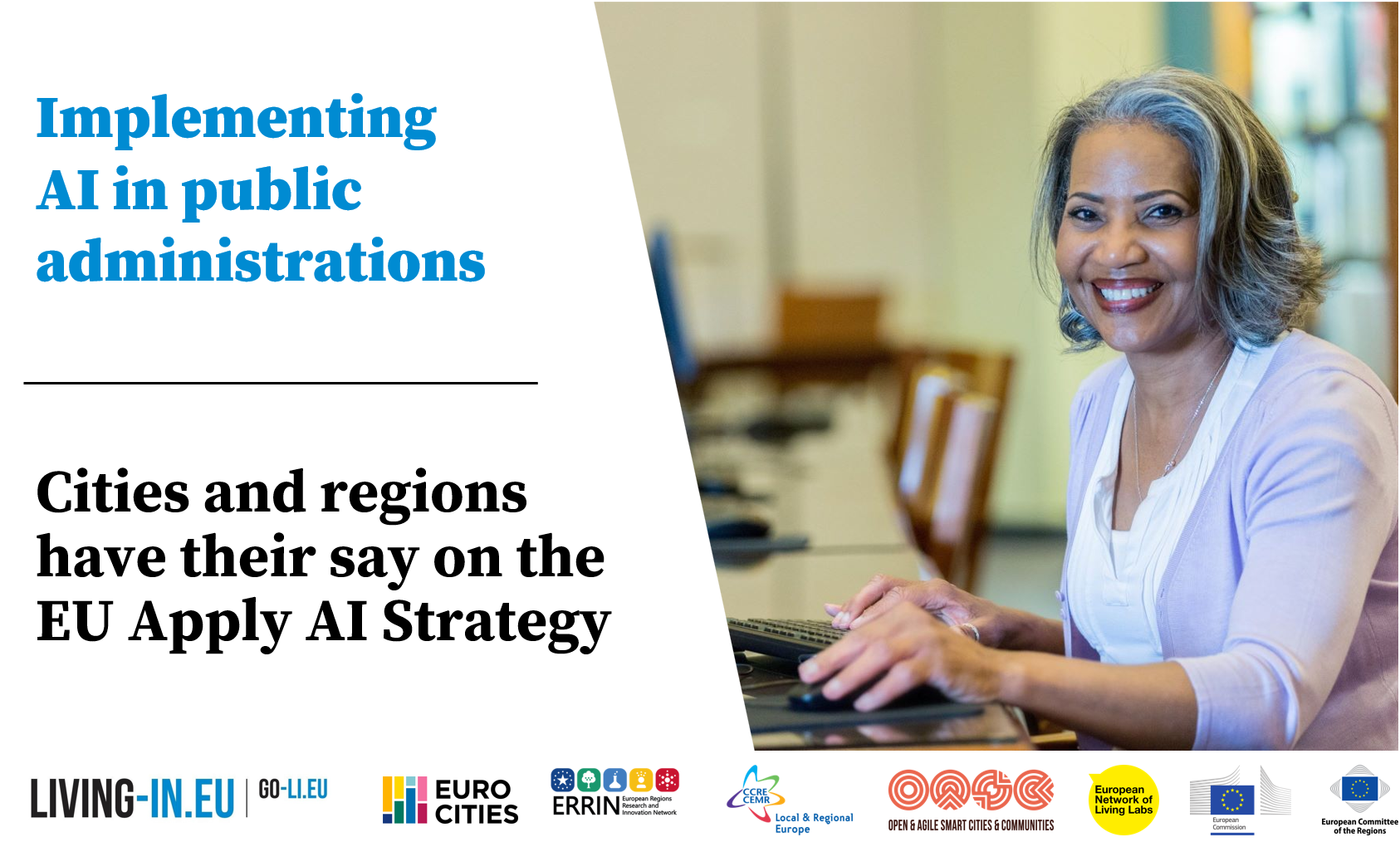On 13 April 2023, the Living-in.EU legal subgroup is organising an online session to discuss the Interoperable Europe Act proposal and its (legal) implications for cities.
During this session, we will have the opportunity to discuss with a representative from the European Commission, who will guide us through the Interoperability Europe Act to help us understand its potential impact on cities and other public authorities. We will also look more in detail at the legislative proposal and its legal implications, by also discussing needs and challenges from the perspective of cities.
What is the Interoperable Europe Act Proposal?
Published in November 2022, the proposal for an Interoperable Europe Act regulation lays down measures to promote cross-border interoperability of network and information systems that are used to provide or manage public services in the EU.
The Interoperable Europe act proposes to establish a governance structure to enable public administrations from all levels and sectors to co-create and coordinate the exchange of information across network and information systems.
It does so by introducing several instruments, such as interoperability assessments, interoperability frameworks, training, regulatory sandboxes and peer reviews. The proposal also defines a multi-level governance framework involving national competent authorities and it introduces a “Interoperable Europe Board” and an “Interoperable Europe Community” to guide European interoperability work based on an annual strategic agenda.
What impact on public sector bodies?
The proposed regulation targets public sector bodies and public services delivered or managed electronically, and so explicitly considers local authorities and their services for its scope. However, the proposal is particularly focused on the cross-border aspects of such services, and it might be unclear for local administrations how ‘cross-border’ is defined, and when and where it applies.
Some of the instruments in the proposal have a potential impact on the resources of public sector bodies. Exercises such as Interoperability assessments and the implementation of (new) interoperability frameworks might have a beneficial effect on the interoperability of services, but also demand financial clout, skills, and expertise from local authorities. What will be expected of them in this regard, and what support can they expect?
The proposal also presents innovative measures such as regulatory sandboxes for cross-border collaborations between the public and the private sector. They offer the potential for the development of new, interoperable services. Nonetheless, their success depends on legal certainty and clarity for the parties involved, and support might be needed to navigate the complexities involved in such new approaches. How do these sandboxes work, and what role is foreseen for cities?
The planned establishment of an Interoperable Europe Community should offer a promising platform for interaction and collaboration between stakeholders, support the identification and re-use of standards and solutions and will be a gateway for public entities to interoperability expertise. But how will this platform work exactly, and when and where can cities be involved? These same questions may apply to the Interoperable Europe Board and the yearly Interoperable Europe Agenda that it develops.
Draft Agenda - 13 April, 12:00-13:30
12:00 - 12:05 Welcome (Living-in.eu Legal subgroup)
12:05 - 12:25 Presenting the Interoperable Europe Act (Isa Katharina von Kalben, Program Manager, DG DIGIT)
12:25 - 12:45 City perspective on the proposal for an Interoperable Europe Act (Helsinki, Eurocities)
12:45 - 13:00 Q&A (including legal expertise)
13:00 - 13:20 Legal concerns and conclusions (TBC)
13:20 - 13:30 Closing
Registration is open here








